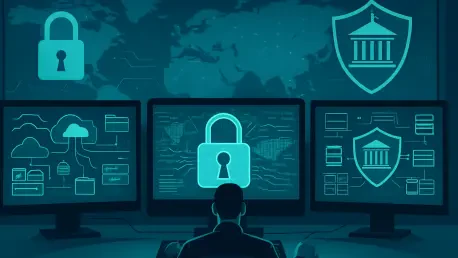As we dive into the evolving landscape of cybersecurity and national security, I’m thrilled to sit down with Donald Gainsborough, a political savant and leader at Government Curated, whose expertise in policy and legislation offers invaluable insights. Today, we’ll explore the recent revelations about tech giants and government IT systems, focusing on the Pentagon’s updated cybersecurity rules, the risks of foreign involvement in sensitive data handling, and the broader implications for national security. Our conversation will touch on critical findings from recent investigations, policy shifts, and the reactions from both industry and government stakeholders.
How did the recent investigation into Microsoft’s practices uncover potential vulnerabilities in government IT systems?
The investigation brought to light a startling reality: for nearly a decade, Microsoft relied on China-based engineers to maintain critical government computer systems. This practice exposed some of the nation’s most sensitive data to potential breaches, especially given the geopolitical tensions and cyber threats we face. It’s a stark reminder of how interconnected global workforces can create unintended risks when handling information vital to national security.
What specific updates did the Defense Department implement in response to these findings?
The Pentagon acted swiftly by tightening its cybersecurity requirements for cloud computing vendors. Now, only personnel from non-adversarial countries are permitted to work on their systems. Additionally, they’ve mandated that supervisors, or “digital escorts,” must have technical expertise matching the systems they oversee. Companies are also required to keep detailed audit logs tracking every action taken by foreign engineers, ensuring transparency and accountability.
Why do you think it took an external investigation for the Pentagon to become aware of these practices involving foreign engineers?
It’s concerning, but not entirely surprising. There appears to have been a significant oversight gap within the Defense Department’s monitoring processes. Top officials admitted they had no knowledge of the digital escort system Microsoft had devised as a workaround to citizenship requirements. This highlights a broader issue of inadequate visibility into contractor practices, which can slip through the cracks without rigorous auditing.
Can you elaborate on the national security risks associated with using engineers from certain foreign countries for sensitive government work?
Absolutely. The primary concern here is the legal framework in countries like China, where the government has extensive authority to access data held by companies or individuals. This creates a direct risk of sensitive U.S. government information being compromised, either through coercion or cyber espionage. Cybersecurity and intelligence experts have warned that such arrangements could be exploited, posing a severe threat to our national interests.
How have lawmakers responded to these revelations about tech vendors and government systems?
The reaction from Congress has been intense, particularly among Republicans, who’ve described Microsoft’s actions as akin to a “national betrayal.” There’s been a strong push for the Defense Department to bolster its security protocols and ensure such practices are eradicated. Lawmakers across the board have demanded accountability and reforms to prevent similar vulnerabilities in the future.
What steps has Microsoft taken in light of the investigation and the Pentagon’s new requirements?
Microsoft announced in July that it would cease using China-based engineers for Defense Department systems, which is a significant shift. They’ve also publicly committed to aligning with the Pentagon’s updated guidelines, emphasizing that national security is a core priority. Their focus now seems to be on rebuilding trust and enhancing the security of their services for government clients.
What can you tell us about the ongoing Pentagon investigation into these practices?
The Defense Department is currently digging deeper into the digital escort program, with a particular focus on Microsoft’s use of China-based engineers. The investigation aims to uncover the full scope of the issue, assess any potential breaches, and determine whether other vendors might have similar practices in place. It’s a critical step toward ensuring such risks are mitigated moving forward.
What is your forecast for the future of cybersecurity policies in government IT systems?
I anticipate a continued tightening of regulations, with a much stronger emphasis on domestic control over sensitive systems. We’re likely to see more stringent vetting of personnel, enhanced auditing mechanisms, and possibly even legislative action to enforce stricter compliance from tech vendors. The balance between innovation and security will remain a challenge, but the priority will undoubtedly lean toward safeguarding national interests in an increasingly complex cyber landscape.









